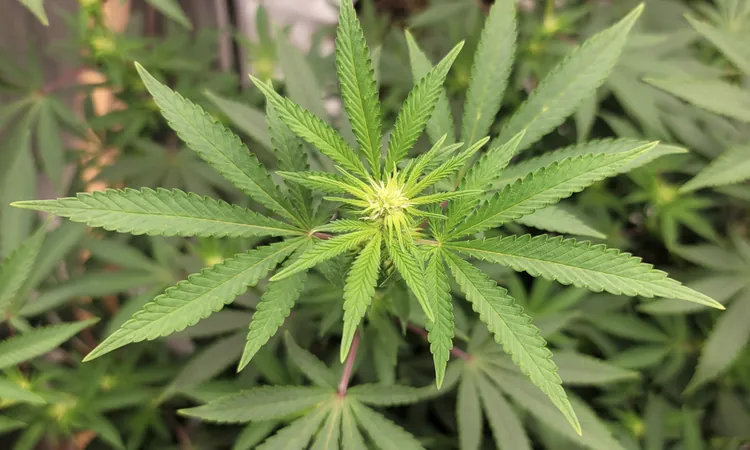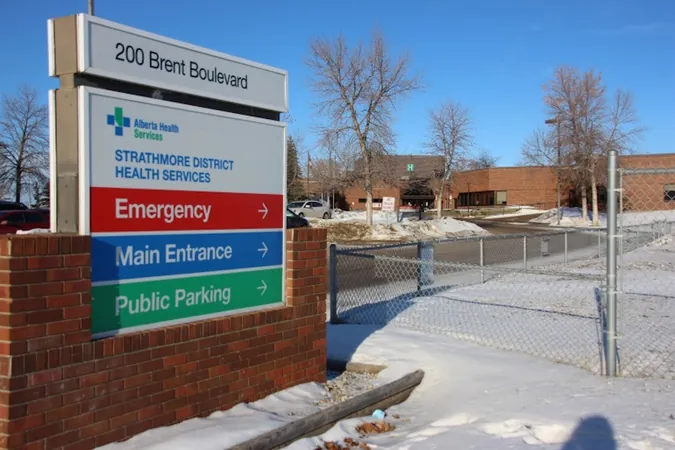
Trump's FDA Nominee Alarms Advocates with Controversial Views on Marijuana as a 'Gateway Drug'
2024-11-25
Author: Emma
Trump's FDA Nominee Alarms Advocates with Controversial Views on Marijuana as a 'Gateway Drug'
In a significant signaling of his administration's stance on cannabis, President-elect Donald Trump has appointed Dr. Marty Makary, a surgeon and medical commentator, as the new commissioner of the Food and Drug Administration (FDA). This choice has raised eyebrows, particularly among advocates of medical and recreational cannabis, due to Makary's skepticism regarding marijuana.
Dr. Makary has openly stated that he believes marijuana is linked to a range of serious health issues, including cardiovascular problems and mental health disorders in adolescents. His comments reflect a belief that the cannabis available today is significantly more potent than that of previous generations, suggesting it poses different risks, especially for young users whose brains are still developing.
On the *Mindbodygreen podcast*, he elaborated on his views, explaining, “While adult users may experience fewer health complications, adolescents may be at a heightened risk.” He cited alarming statistics indicating that individuals who begin consuming cannabis as teenagers have up to a 25% likelihood of developing psychosis later in life. Makary's remarks are particularly timely, as attitudes toward marijuana have shifted dramatically in recent years, with recreational use now legal in over 20 states.
Interestingly, Dr. Makary offers a nuanced perspective. While he provides a cautionary stance on cannabis use among youth, he acknowledges the potential therapeutic benefits of THC for patients suffering from conditions like Crohn's disease and terminal cancer. Yet, he warns that these benefits do not negate the potential dangers to younger users.
The ramifications of Makary’s appointment are significant, especially in light of the current debate surrounding drug policy reform. His skepticism aligns starkly with Trump's choice for Secretary of Health and Human Services, Robert F. Kennedy Jr., who supports the legalization of marijuana and certain psychedelics for therapeutic purposes. This juxtaposition poses questions about the direction of cannabis policy under the incoming administration.
Makary's narrative also extends beyond public health concerns; he challenges the economic argument for legalization, which posits that regulating cannabis can diminish illicit trade. He argues that drug cartels and other organized crime groups continue to dominate the drug market, asserting that misconceptions about the safety of marijuana could weaken efforts to combat drug abuse in America.
A notable aspect of Makary's discourse is his bold assertion about marijuana as a "gateway drug," a theory that gained traction in the 1980s but has faced substantial criticism and debate over the years. He insists that dismissing this theory without solid scientific support is misleading, urging a more cautious view of cannabis use in society.
Furthermore, if confirmed, Makary would hold significant power over future cannabis legislation and regulation. The FDA's authority extends to the approval and regulation of cannabis-infused products, and recent discussions within the agency may influence whether marijuana retains its current classification as a Schedule I substance under the Controlled Substances Act.
With cannabis rapidly becoming mainstream and public support for legalization climbing, the implications of Dr. Makary's appointment could pose challenges for advancement in cannabis policy. As both advocates and opponents of legalization brace for what could be a contentious period ahead, many are left wondering: will the momentum towards reform be halted by a return to stringent regulatory measures?
The potential for a conflicting approach to drug policy under the Trump administration looms large, setting the stage for critical discussions about the future of cannabis in America. As pressures mount from all sides, it remains to be seen how this pivotal appointment will shape the landscape of cannabis legislation and the broader implications for public health in the years to come.









 Brasil (PT)
Brasil (PT)
 Canada (EN)
Canada (EN)
 Chile (ES)
Chile (ES)
 España (ES)
España (ES)
 France (FR)
France (FR)
 Hong Kong (EN)
Hong Kong (EN)
 Italia (IT)
Italia (IT)
 日本 (JA)
日本 (JA)
 Magyarország (HU)
Magyarország (HU)
 Norge (NO)
Norge (NO)
 Polska (PL)
Polska (PL)
 Schweiz (DE)
Schweiz (DE)
 Singapore (EN)
Singapore (EN)
 Sverige (SV)
Sverige (SV)
 Suomi (FI)
Suomi (FI)
 Türkiye (TR)
Türkiye (TR)